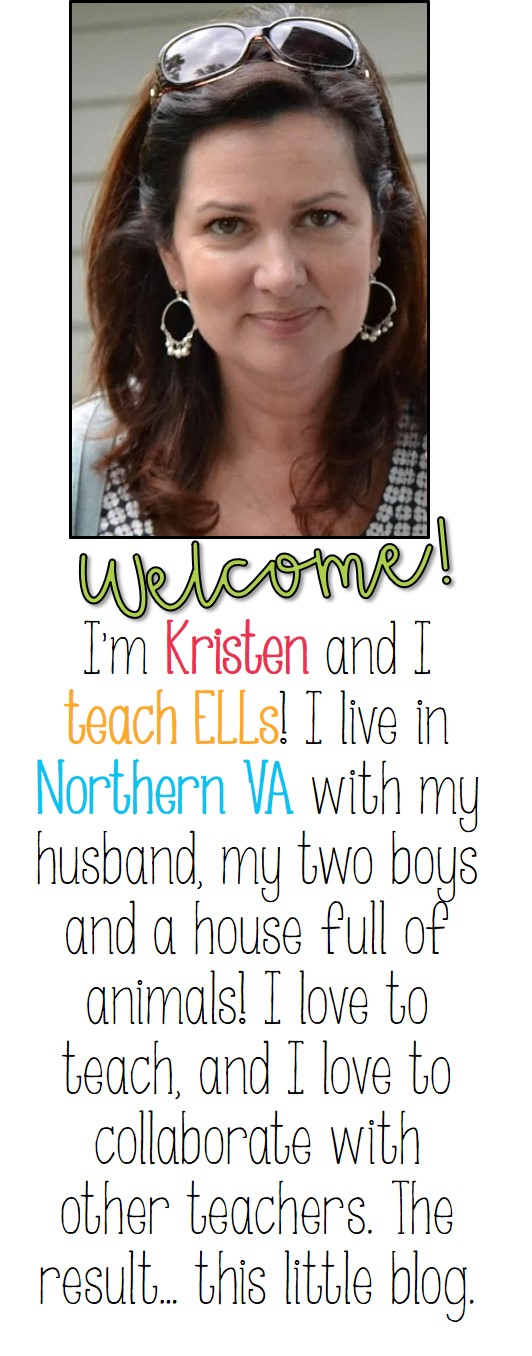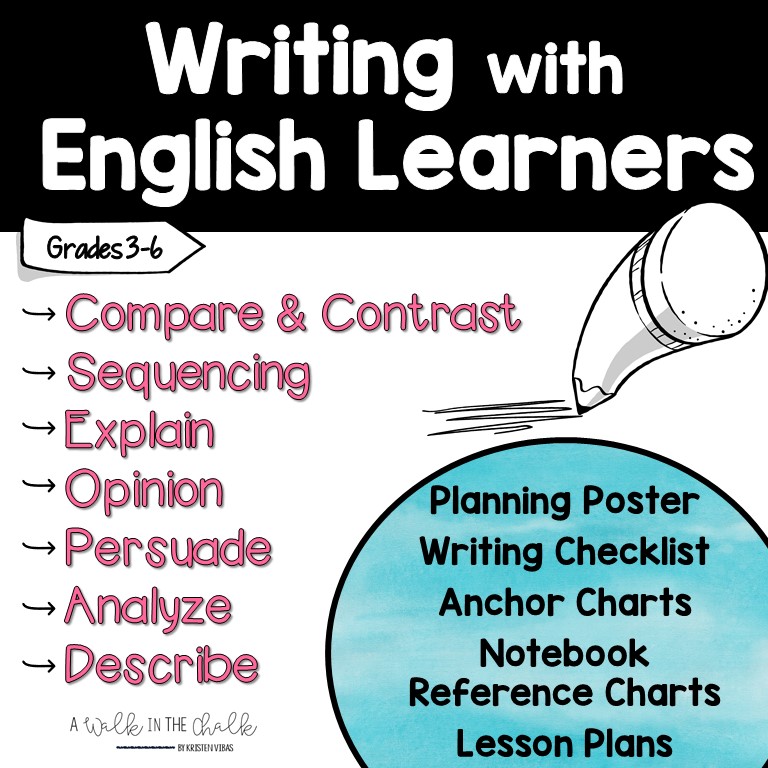Are your newcomers included in daily lessons and activities? All lessons and activities? Or, are your newcomers working by themselves while the class is engaged in a lesson or activity? Newcomers can and should be included in all lessons and activities, not sat at a computer or isolated from the class doing a different activity. Here are some tips for including newcomers in classroom lessons and activities.
For whole group lessons, I suggest sitting newcomers in the front, focus on a few key words during the lesson, use meaningful visuals, and incorporate movement or a hands-on activity which can be done with a partner.
It’s not always easy and can be a challenge including newcomers in certain lessons and activities because of the language load, but there’s always a way with the support of a few strategic scaffolds. We (ESL teachers) can support our gen ed teachers by helping brainstorm specific ideas depending on the lesson or activity.
Will newcomers understand and “get” the details of the lesson? No, but that's OK! They WILL get bits and pieces of information, as well as, make connections in their new language. Soon those bits and pieces start fitting together. (Those pieces of information are the comprehensible input we purposefully add to the lessons.) I know teachers worry about how much students will understand. My suggestion is to stop worrying. Learning a new language is a process. Let them explore that process. I promise they are making connections.
When newcomers are isolated by doing something different, they feel different. Recently one of my 6th graders was given a kindergarten mini book about Memorial Day to color while the rest of the class did something else. The classroom teacher wasn’t trying to embarrass the student, but she did. We should not give our older ELs "kindergarten" materials. I know that's a whole other challenge, finding age appropriate materials at a low language level, but they are out there. And if you can't find it, ask around. Giving primary looking materials to older ELs causes embarrassment and hurts their self esteem.
One of the most challenging subjects, in my experience, is writing. Here's an example on how to include a newcomer in a Writer's Workshop lesson/activity. Let's say the class is learning to write a personal narrative. How can the instruction, lesson activity and independent practice support our newcomer(s)?
1 - Start by showing examples of the genre.
2 - Use students L1 (native language) to explain the main concept, or gist. I use the Google Translate app on my phone or an iPad in the classroom. It takes just a second. "Sara, a personal narrative is a true story about something that has happened to you." Done!
3 - Demonstrate the characteristics of the genre by using graphic organizers.
4 - Have your newcomer ILLUSTRATE ideas to start, then label the illustrations. Perhaps the whole class starts by sketching their ideas first.
5 - Give your newcomer some L1 supports, such as Google Translate or a bilingual dictionary to help with vocabulary.
Also, having newcomers write in their native language at this beginning stage of their arrival is another great way of including them!
The point is, he or she is part of the class and part of the lesson. Of course the output will not be on grade level, nor should it be graded as such. So, what types of output can be expected from a newcomer? That's important information to know. If you are a gen ed teacher and aren't sure, ask your ESL teacher for a list of expectations at each language level. The CAN-DO Descriptors on the WIDA website is a great reference tool.
Learning is a process and our newcomers are at the beginning stage. It's OK for students to struggle, this too is part of the learning process. Let them try. Give them tools. Check in on them. Give them scaffolds and support. They will grow!
Providing structured and scaffolded opportunities for newcomers to learn with their classmates in their new language is best practice.
ESL teachers have an important role in supporting gen ed teachers of ELs. When newcomers arrive, we meet regularly with our teachers to discuss this very topic and to share ideas on how to include our newcomers in all classroom lessons and activities.
There is a time and place for our newcomers to be working on appropriately leveled independent activities, but it's not when the class is engaged in a lesson or activity.
Let's focus on what students CAN DO, not on what they can’t do (yet).



























No comments